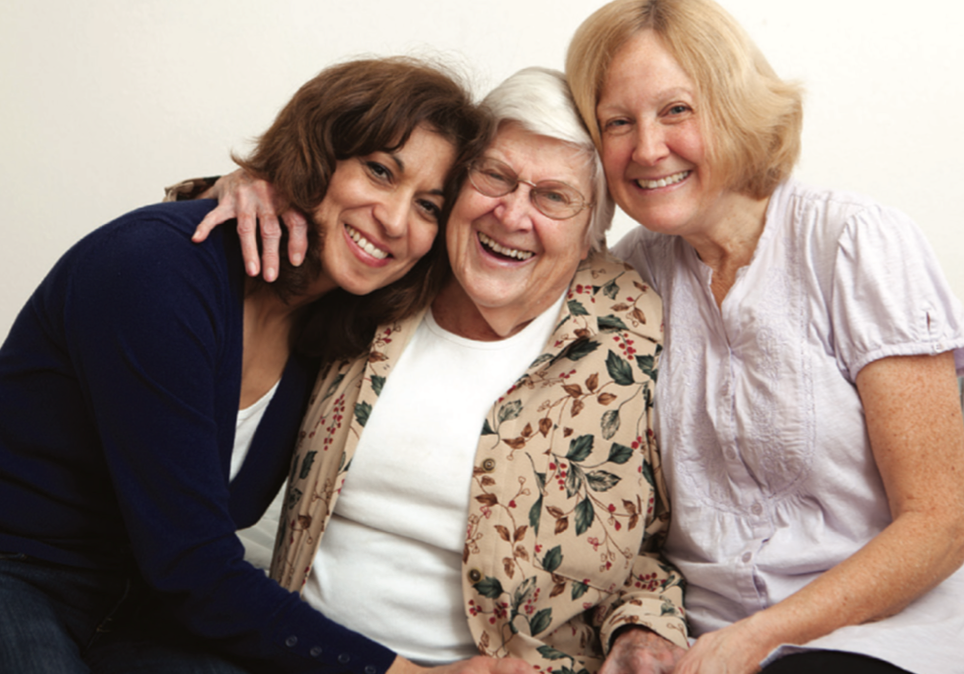Providing for the Alzheimer’s Patient
When a person has Alzheimer’s disease, their family and close friends also live with it, not only because they share their everyday life, but because it is common for a family member to become their caregiver.
Among the Latino communities, such a situation is very delicate, because the family usually provides care for the grandparents in their old age or in sickness. There is a great taboo around even thinking of the possibility of placing them in an assisted living home or skilled nursing facility, even if they are disabled due to a disease or they cannot take care of themselves. Latinos understand that our elders’ life expectancy and well-being are improved in a family environment. But what happens when, for whatever reason, this senior has only one relative to take care of them? And what if this relative has to provide for their children as well? Gabriela Harbison, a current Care Coordinator for the Alzheimer’s Resource of Alaska (ARA), shares her personal experience as a Hispanic in dealing with this disease: “I had the opportunity to attend my son’s graduation from the US Navy in Chicago, but I had to take care of my mother. At that moment we had already joined the ARA’s program. The Care Coordinator at that time recommended us an assisted living house for ten days. Upon my return, I was surprised that my mother was happy with the experience. Her longtime friends from church visited her every day and they even brought the new priest with them. She told me with great excitement, ‘I met Father Dominique’! “I realized then that my fears about assisted living had no basis, and that my mother there was very well cared for. Thanks to ARA, we were able to keep a healthy mother-daughter relationship even through the difficulties of illness.” Rebecca Marinelli, Care Coordination Manager for ARA, explains that the agency is dedicated to increasing awareness and understanding of Alzheimer’s disease and related dementia care to provide for patients’ dignity and comfort until a cure is found. Information, referrals, consultation and awareness events are open to the entire community. According to their website, ARA was founded in the early 1980s by Rebecca Clement and Beverly Tallman, a couple of sisters taking care of their mother with dementia. Due to a lack of information publicly available on the subject, they started to look for support. By 1982 Rebecca and Beverly had formed the first Caregiver Support Group, which was incorporated by 1984. Since its inception, ARA has attended patients throughout the state. Marinelli reminds us that ARA Care Coordination Services are available to Alaskans eligible for the Alaska Medicaid Waiver or the Senior In Home Grant Program. “Our Care Coordinators are a team of professionals with extensive knowledge of community resources and funding sources that allow people to live as independently as possible and remain at home in their chosen community. Care Coordinators provide confidential consultations to determine how best to meet your needs.” ARA continues its founders’ mission by providing educational support to family caregivers, offering classes and support groups. Gabriela Harbison started working for ARA because as she learned firsthand: “If we find ourselves in the situation of becoming a caregiver to a family member suffering from Alzheimer’s disease or dementia, we are not alone. There are organizations we can turn to for support, and they can help us to make this mission of being a caregiver a little easier, providing us with services, education and even directing us towards financial support. There is nothing wrong with relying the caregiving of our loved ones to a specialized nursing home, and its skilled personnel. Organizations such as ARA are committed to support the community. It is just a matter for us to learn about their goals, contact them, and ask for their help when necessary.” |
|
|
www.AlzAlaska.org
Anchorage 1750 Abbott Road Anchorage, AK 99507 Phone (907) 561-3313 Fax 561-3315 |
Fairbanks 565 University Avenue, Ste. 2 Fairbanks, AK 99709 Phone (907) 452-2277 Fax 457-3376 |
Juneau 3225 Hospital Drive, Ste. 101 Juneau, AK 99801 Phone (907) 586-6044 Fax 586-6084 |
Glenallen and the Copper River Basin Phone (907) 822-5620 1-800-478-1080 ext. 6 |
Matanuska-Susitna Valley Trinity Barn Plaza 10355 E. Palmer-Wasilla Hwy., Suite 110, Palmer, AK 99645 Phone (907) 746-3413 |
